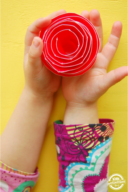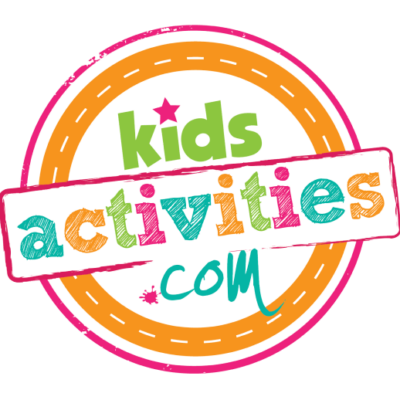We know it’s difficult to keep up with the rapid influx of information about Coronavirus. And we know life during a global pandemic can be stressful! That’s why we created a page full of
Coronavirus Resources for Fun and Safety. We curated this guide specifically for
families with kids to navigate daily life during the COVID-19 outbreak.
This resource includes safety instructions from the CDC, state-specific health guidelines, ways to help your community and fun activity ideas your kids will love. We even have ideas of ways to help others!

Coronavirus Resources for Families with Kids
According to the
CDC, there are a few actions you can take to help protect yourself, your family, and others from COVID-19.
COVID-19 is mostly spread person-to-person.
- Try to stay at least 6 feet away from anyone who is not a member of your household. We understand that many people must leave home for work, so this is not possible for everyone.
- Wash your hands often with soap and water for at least 20 seconds. Here’s list of songs compiled by CNN that can help you keep track of time!
- Wear a mask if you leave your home. Here are CDC mask recommendations and a tutorial for making your own. Even if you are wearing a face covering, you should keep a safe distance between yourself and others whenever possible.
- If you are in a private space without your face mask, use a tissue when you cough or sneeze. Immediately throw away the tissue and wash your hands. If you do not have a tissue, cover your cough or sneeze with the inside of your elbow.
- Clean and disinfect frequently touched surfaces every day. Use soap and water if the surfaces are dirty, then use regular household disinfectant.

This information can be found on the
CDC website.
Coronavirus Tips for Buying Groceries and Other Essential Items
Shop for groceries curbside or delivery if available. If you must go into a store to shop, it’s best to do the following:
- Disinfect the cart.
- Wear a mask.
- Stay 6 feet away from other customers.
- Try to go to the store during less crowded hours.
- Do not touch your face.
- Only touch items you intend to purchase.
- Use touchless payment when possible.
- Use hand sanitizer when you’re finished shopping & wash your hands when you arrive back home.
- If you are able, buy enough groceries for a couple weeks, but do not hoard.
.tmb-1920v.png)
Coronavirus Tips for Ordering & Accepting Delivery
- Avoid contact when you can.
- Attempt to pay over the phone and ask for packages to be left at the door or in the lobby, if possible.
- Wash hands after accepting deliveries.
Coronavirus Tips Getting Gasoline
- Use gloves or disinfect buttons.
- Use hand sanitizer before getting back into your car.
- Wash your hands with soap and water when you return home.
Coronavirus Tips for Doctor and Pharmacy Visits
- Use telemedicine services when possible.
- Reschedule procedures that are not urgent.
- Before you visit, inform the office if you are exhibiting COVID-19 symptoms or if you think you have been exposed to COVID-19.
- If you must go to the visit, follow regular coronavirus guidelines. Do not touch your face. Wear a mask. Stay 6 feet away from others. Disinfect surfaces that you need to touch. Use hand sanitizer. Wash your hands when you return home.
- Use pharmacy drive-through windows when possible.
Coronavirus Tips for Kid & Adult Exercise
Exercise can be helpful for your physical and mental health. It’s also a fun way to pass the time!
- You may be able to go to the park. Check out the CDC website for park & recreation safety tips. Basically, stay home if you are sick or have been exposed to COVID-19. Stay 6 feet away from other people. Wear a cloth mask. Wash your hands or use hand sanitizer if you touch anything. Do not use public playgrounds.
- Popsugar Fitness has over 500 free workouts. These workouts were designed for adults, but kids have fun jumping around while their caregivers work out!
- Check out this list of super fun workouts for kids via Romper. My personal favorite is Cosmic Kids Yoga!

How to Explain Coronavirus to Kids
There are helpful coronavirus resources for explaining COVID-19 to kids. Check out this free
coronavirus children’s book written by an expert, Dr. Christine Borst.

Commonly Asked Coronavirus Questions and Answers
We gathered some of the most commonly asked questions about coronavirus and answered them for you here.

What does COVID-19 stand for?
COVID-19 is shorthand for Corona Virus Disease 2019.
What is the treatment for the coronavirus disease?
There is no vaccine or FDA approved anti-viral medication to treat COVID-19. According to
Harvard Health Publishing, you should get plenty of rest, stay hydrated, and use proper dosage of acetaminophen for pain relief.
WHO recommends seeking medical attention if you have have a fever, cough, and difficulty breathing.
What is the recovery time for the coronavirus disease?
Recovery time depends on how ill you become in the first place.
WHO reported that it takes an average of two weeks to recover. For those who experience serious symptoms, it could take up to eight weeks to recover, according to
BBC.
How can I care for a family member with coronavirus disease at home?
WHO provides specific recommendations for ill people, members of an ill person’s household, and caregivers of ill people.



How is coronavirus related to SARS?
The viruses that caused COVID-19 and the SARS outbreak of 2003 are genetically related but the diseases are quite different, according to
WHO.
Is coronavirus like the flu?
Yes and no.
There are similarities between COVID-19 and the seasonal flu.
- The two have overlapping disease presentations. According to Johns Hopkins Medicine, both cause fever, cough, body aches, and fatigue. They sometimes cause vomiting and diarrhea as well. They can both develop into pneumonia.
- The way they spread is also similar– the viruses spread from person to person through droplets in the air from an infected person coughing, sneezing, or talking. Both can spread by an infected person before the person shows symptoms.
But there are also important differences between COVID-19 and the flu.
- They are caused by different viruses.
- There are flu vaccines, whereas there are not yet any vaccines available for COVID-19.
- Unlike for the flu, there are currently no approved antiviral medications for treatment of COVID-19.
- COVID-19 is estimated to to be about 10 times more lethal than the seasonal flu, according to Dr. Anthony Fauci, Director of the National Institutes of Allergy and Infectious Disease. We do not know the true death rate yet, however. The New York Times reports that unofficial COVID trackers show that about 6.4 percent of infected people have died worldwide.
- COVID-19 may stay in the air and infect others even after the infected person leaves, as noted by Johns Hopkins.
What are coronavirus symptoms?
According to the
CDC, the following symptoms may appear 2-14 days after exposure to the virus:
- Fever
- Cough
- Shortness of breath or difficulty breathing
- Chills
- Repeated shaking with chills
- Muscle pain
- Headache
- Sore throat
- New loss of taste or smell
Emergency warning signs of COVID-19 include trouble breathing, persistent pain or pressure in the chest, new confusion or inability to arouse, and bluish lips or face.
CDC notes that this list is not all-inclusive. Call 9-11 immediately if you experience a medical emergency.
Are there coronavirus resources for low-income people?
- Check out this U.S. government benefits page with information on unemployment resources, healthcare coverage, resources for business, and resources for families.
- The National Low Income Housing Coalition has updated, helpful resources for people in need and those who want to help.
How can I help during coronavirus?
What a great question! Here are some ideas:
For more ideas, check out this list of ways to help via
CNN.

Are the symptoms for the coronavirus disease different in children than in adults?
According to the
CDC, symptoms are similar in children and adults. However, symptoms in children are often milder.
Am I more at risk if I’m pregnant?
According to the
CDC, it is currently unknown whether pregnant women have a greater chance of getting sick from COVID-19. However, pregnant people have been more at risk for illness from other viruses from the same family as COVID-19.
Can I breastfeed if I have coronavirus?
You should talk to your doctor about this question. The
CDC reports that there are no studies so far that show COVID-19 in breastmilk. If you are sick and decide to breastfeed, wear a face mask and wash hands before feeding. The
CDC provides pumping guidelines as well.
Are young people having strokes from coronavirus?
Yes. See this article from
Washington Post. If you exhibit any stroke-like symptoms, such as slurred speech, confusion, drooping on one side of your face, or a dead feeling in one arm, please seek immediate medical attention.

Quality Coronavirus Resources
There is so much informations about coronavirus online. But it’s not all created equal! We provided a list of quality, trustworthy sources.
U.S. and International Coronavirus Resources
Centers for Disease Control and Prevention
World Health Organization
National Institute of Health
U.S. Department of Education
U.S. Department of State
United Nations
U.S. State and Territory Health Department Coronavirus Resources and News
The week of April 26, some states are easing safety practices regarding coronavirus. According to some health experts and officials, it’s too early. Check out these articles on
CNN and
Fox News.
These links take you directly to each state’s Health Department.

Coronavirus Fun Ideas & Resources for Kids at Home
Now for the fun part! We know your day isn’t all cleaning and feeding and thinking about the virus– we hope! Please check out these activity ideas your kids will love. Coronavirus is influencing children’s play in interesting ways, according to
The Atlantic. Encourage kids to play, no matter how they do it!
Please keep in mind that I am not a health expert–I simply gathered resources to help you navigate COVID-19. Stay well!

 This information can be found on the CDC website.
This information can be found on the CDC website.
.tmb-1920v.png)






























This was beautiful Admin. Thank you for your reflections.
So glad that you enjoyed it!